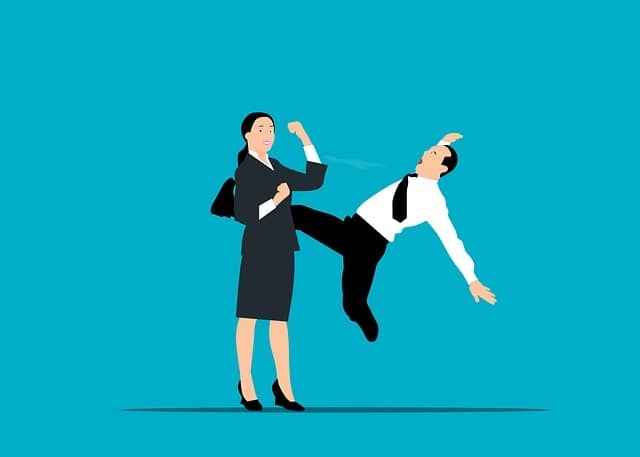Why did Jack punch Piggy? As an expert on the novel “Lord of the Flies,” I believe that Jack’s violent reaction towards Piggy in Chapter 4 was not solely due to letting the fire die out. The altercation between Jack and Piggy was also rooted in their fundamental differences in values and leadership styles.
Why did Jack punch Piggy? (Answer)
When Ralph and Piggy confront Jack’s group about letting the fire die out in Chapter 4, it is clear that Jack does not take kindly to being questioned or challenged. Jack’s displeasure is evident in his defensive response when he retorts, “Who are you, anyway? Sitting there telling people what to do. You can’t hunt, you can’t sing—” before ultimately punching Piggy.
However, this scene also reveals deeper underlying tensions between Jack and Piggy. Throughout the novel, they represent two very different approaches to leadership: Jack represents authoritarianism and aggression, whereas Piggy embodies reason and rationality. These opposing ideologies come into direct conflict during their confrontation over the fire.
Jack’s reaction towards Piggy is also significant because it marks the first physical altercation in the novel. The violence highlights how quickly societal norms break down without any external law enforcement or guidance. It foreshadows further violence as tensions rise between Ralph’s group, who value order and civilization, versus Jack’s tribe, who seek primal freedom.
Moreover, shattering Piggy’s glasses symbolizes more than just a broken object. Piggy’s broken glasses represent a loss of intellectualism on the island. The boys no longer value knowledge or thinking skills as survival tools.
What is the real reason Jack attacks Piggy?
The real reason Jack attacks Piggy in Lord of the Flies is because Piggy blamed him for letting the fire go out.
What happens to Piggy after he yells at Jack for letting the fire go out?
After Piggy yells at Jack for letting the fire go out, Jack reacts violently and punches Piggy in the stomach.
How does Jack treat Piggy in Chapter 4?
In Chapter 4 of Lord of the Flies, Jack treats Piggy disrespectfully and verbally abuses him by repeatedly calling him “Fatty.”
Why was Piggy scared of Jack?
Piggy was scared of Jack because he knew that Jack was a bully who consistently made fun of him.
Why does Jack refuse to give Piggy meat?
Jack refuses to give Piggy meat because he resents his relationship with Ralph and sees Piggy as an outcast. Throughout the book, Jack becomes increasingly jealous of Ralph’s authority and popularity among the other boys. By denying Piggy meat, Jack establishes his dominance and asserts his power over those he perceives as threats or outsiders. In Jack’s mind, giving Piggy meat would mean acknowledging his presence and potentially elevating him in the social hierarchy, which goes against Jack’s desire for control and superiority.
Who gives Piggy meat?
Simon gives Piggy meat.
Why is Ralph mad at Jack? What does he do about this?
Ralph is mad at Jack because the hunters, led by Jack, neglect their responsibility of maintaining the fire. The fire is crucial as it serves as a signal for potential rescuers. Ralph realizes that Jack’s obsession with hunting and power has caused him to prioritize those activities over their chances of being rescued. In response, Ralph confronts Jack about the importance of the fire and tries to enforce rules and order, but his efforts are met with resistance and defiance from Jack and his followers.
What is Jack’s main priority in Chapter 4?
In chapter 4 of Lord of the Flies, Jack’s main priority is to go hunting for meat.
Conclusion
In conclusion, while letting the fire die out may have been what sparked Jack’s violent reaction towards Piggy, their fundamental differences in values also contributed to their conflict in this scene. This moment signifies how power struggles within society can result in aggression when individuals feel threatened or challenged by others with different beliefs or ideas. Jack is an authoritarian leader, while Piggy is a rationalist thinker, which leads to chaos rather than order. Ultimately this struggle endangers the entire community’s survival.
